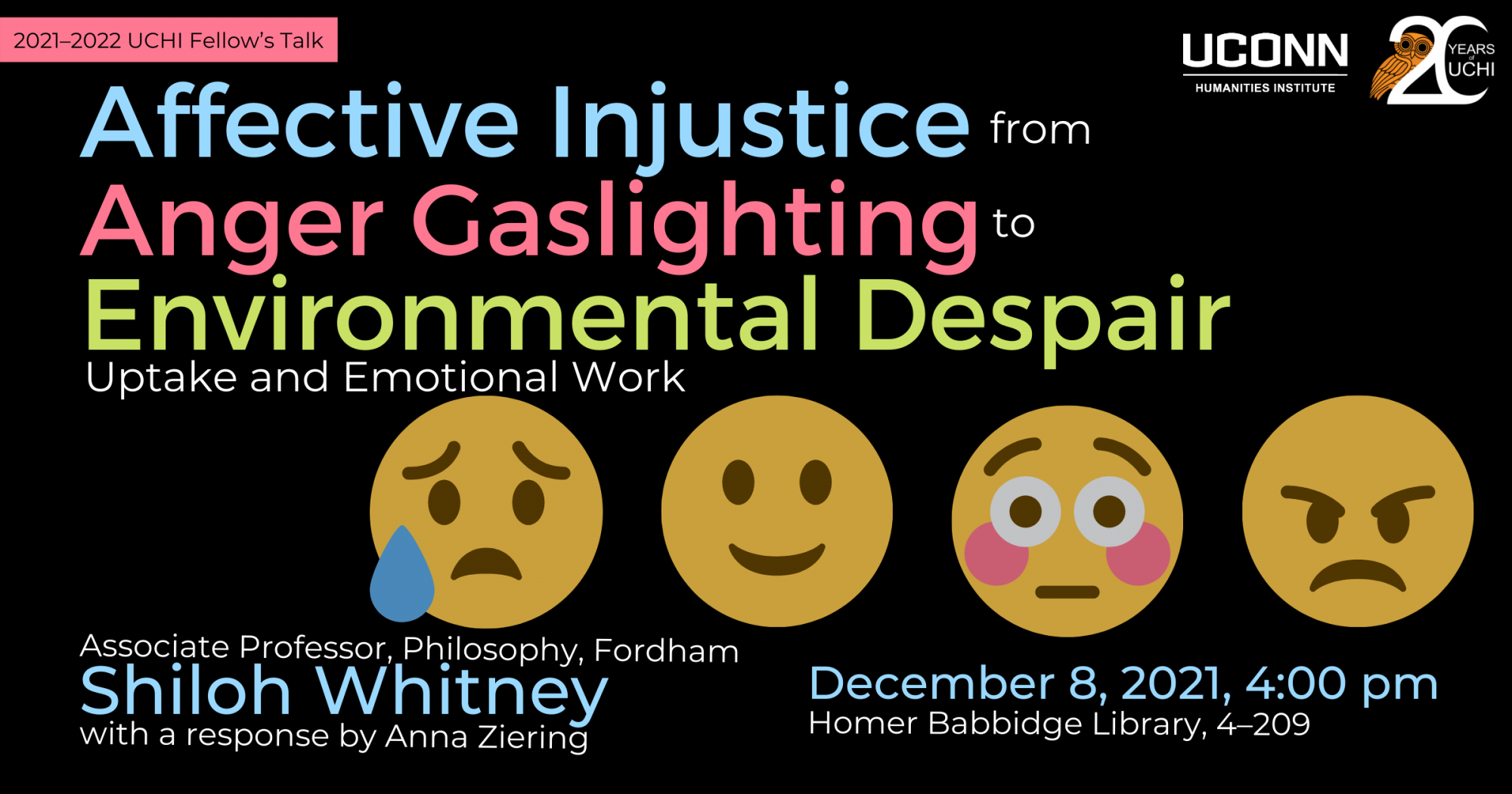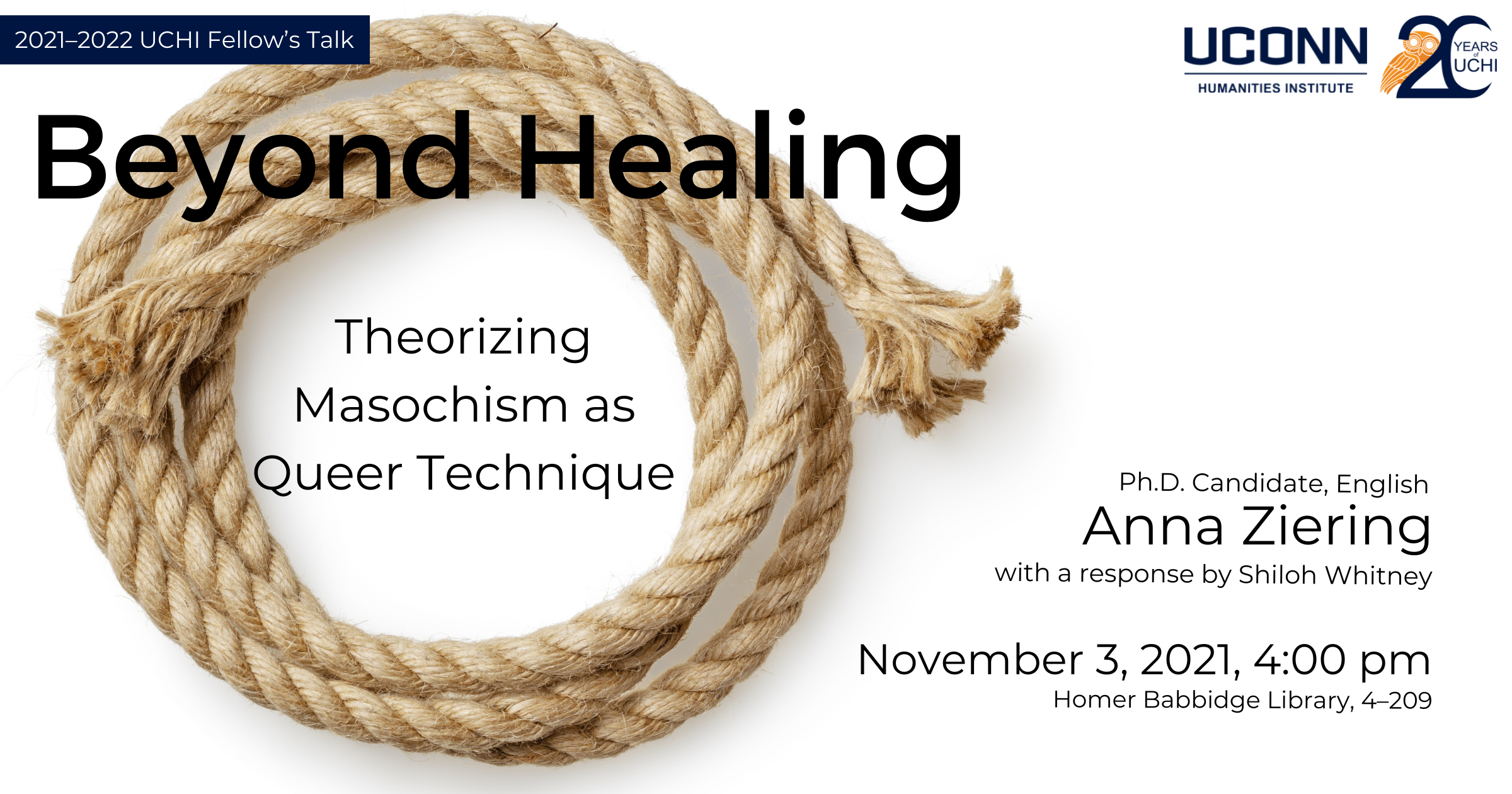Affective Injustice from Anger Gaslighting to Environmental Despair
Shiloh Whitney (Associate Professor, Philosophy, Fordham University)
with a response by Anna Ziering (English, UConn)
Wednesday, December 8, 2021, 4:00pm. Homer Babbidge Library, 4-209.
Add to Google calendar Add to Office 365 calendar Add to other calendar
The event will also be livestreamed with automated captioning.
To attend virtually, register here
This is an Honors Event. Categories: Multiculturalism & Global Citizenship, Academic & Interdisciplinary Engagement.
Anger gaslighting is behavior that tends to make someone doubt the aptness of her anger. In this talk, I will share some results from my study of the case of anger gaslighting. In particular, I will excavate the concept of giving or refusing uptake to each other’s emotions, and explain how uptake matters for structural injustices like sexism and racism. While the anger gaslighting case is instructive and important in its own right, my goal is to convince you that “uptake injustice” is an important category of affective injustice, one that is scalable beyond the specifics of the case of anger gaslighting. I’ll invoke the cases of environmental despair and “himpathy” as proof of concept. And I’ll suggest some ways that giving and refusing uptake to each other’s emotions is an important category of emotional work.
Shiloh Whitney is an Associate Professor of Philosophy at Fordham University. Her research lies at the intersection of Feminist Philosophy, Critical Phenomenology, and Philosophy of Emotions. She is currently an external fellow at UConn’s Humanities Institute, writing a book about emotional labor and affective injustice.
Anna Ziering is an English PhD candidate at the University of Connecticut, where she has completed graduate certificates in American Studies and Women’s, Gender, and Sexuality Studies. Her teaching and research center on intersectional feminist questions of racial and gender justice in twentieth-century American literature and culture. Her writing, published in MELUS and The Black Scholar, has received the Susan Porter Benson Graduate Research Award (2020) and the Aetna Graduate Critical Writing Award (2017). This year, she is a UCHI Fellow, a PEO Public Scholar, and a recipient of the Wood/Raith Gender Identity Living Trust Fellowship. Her work has also been recognized by the American Association of University Women.
Access note
If you require accommodation to attend this event, please contact us at uchi@uconn.edu or by phone (860) 486-9057. We can request ASL interpreting, computer-assisted real time transcription, and other accommodations offered by the Center for Students with Disabilities.



